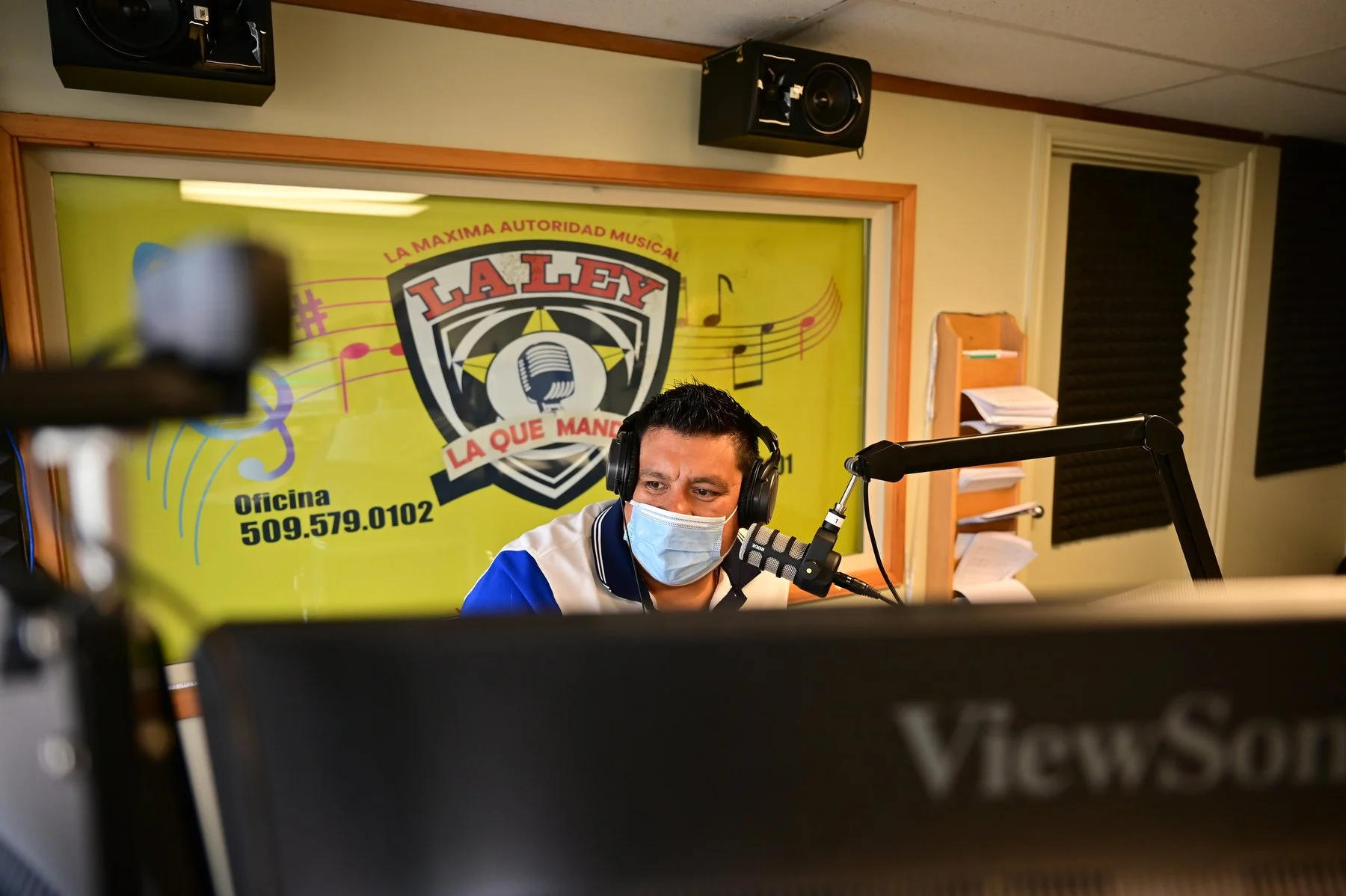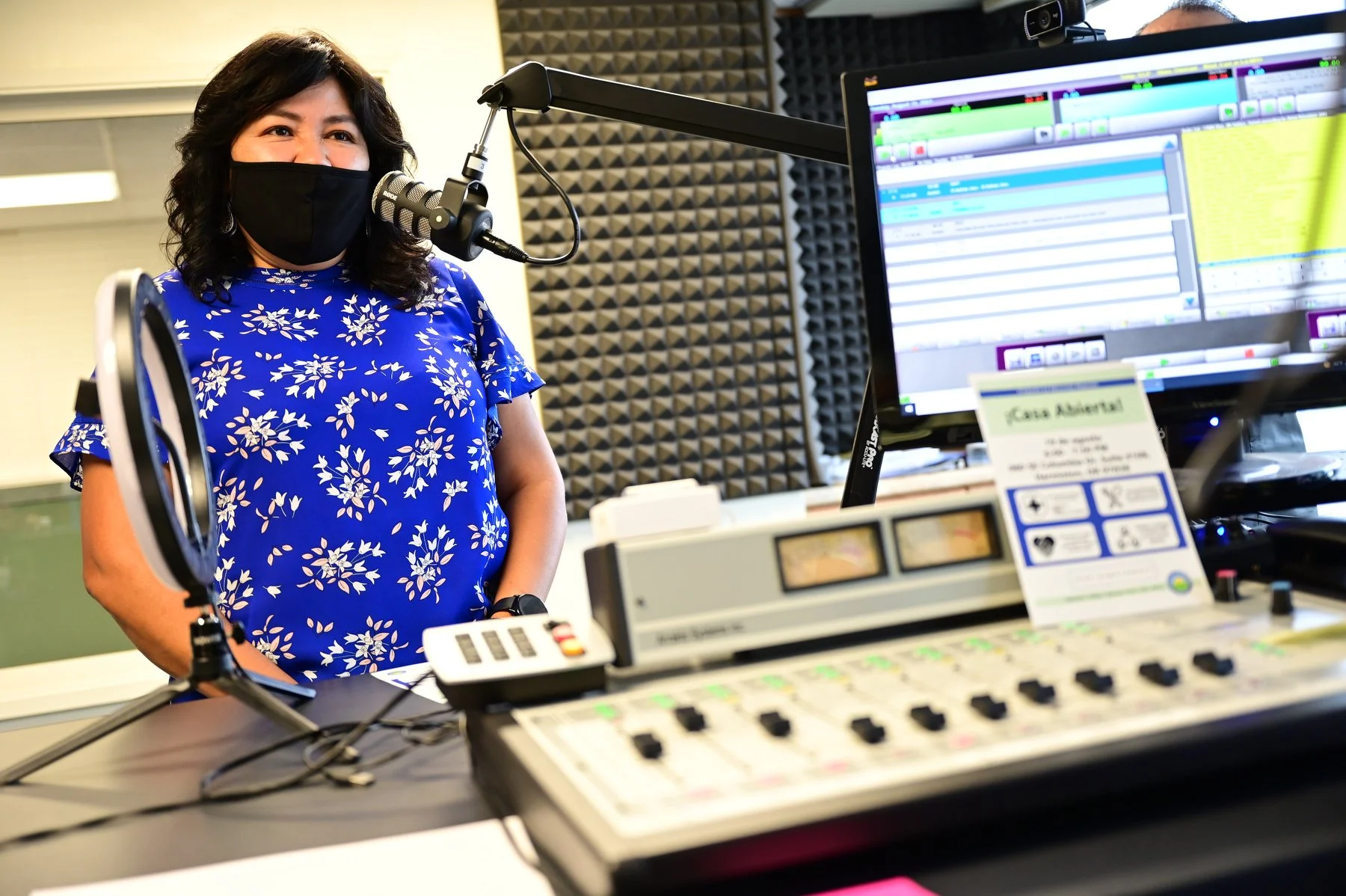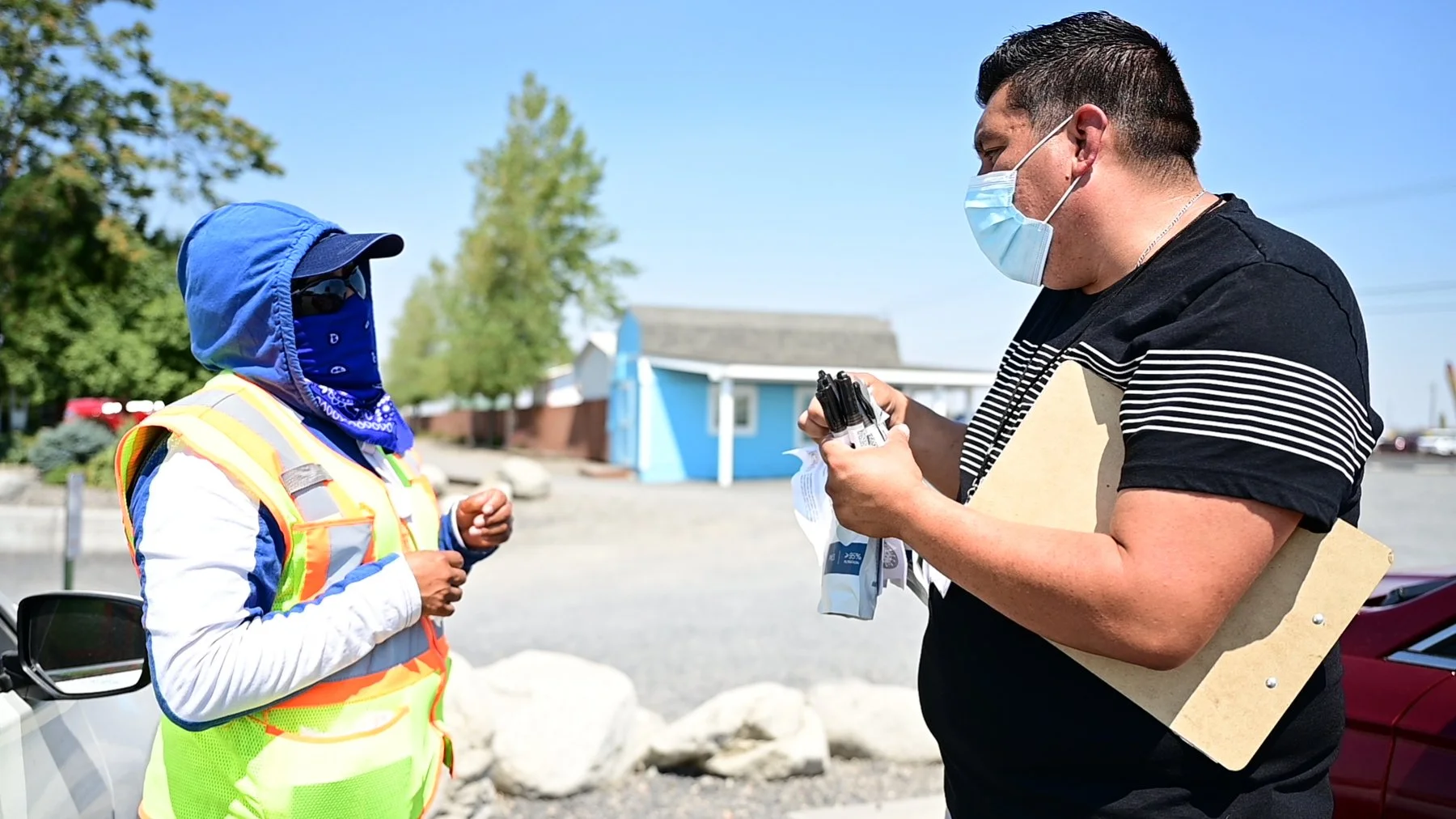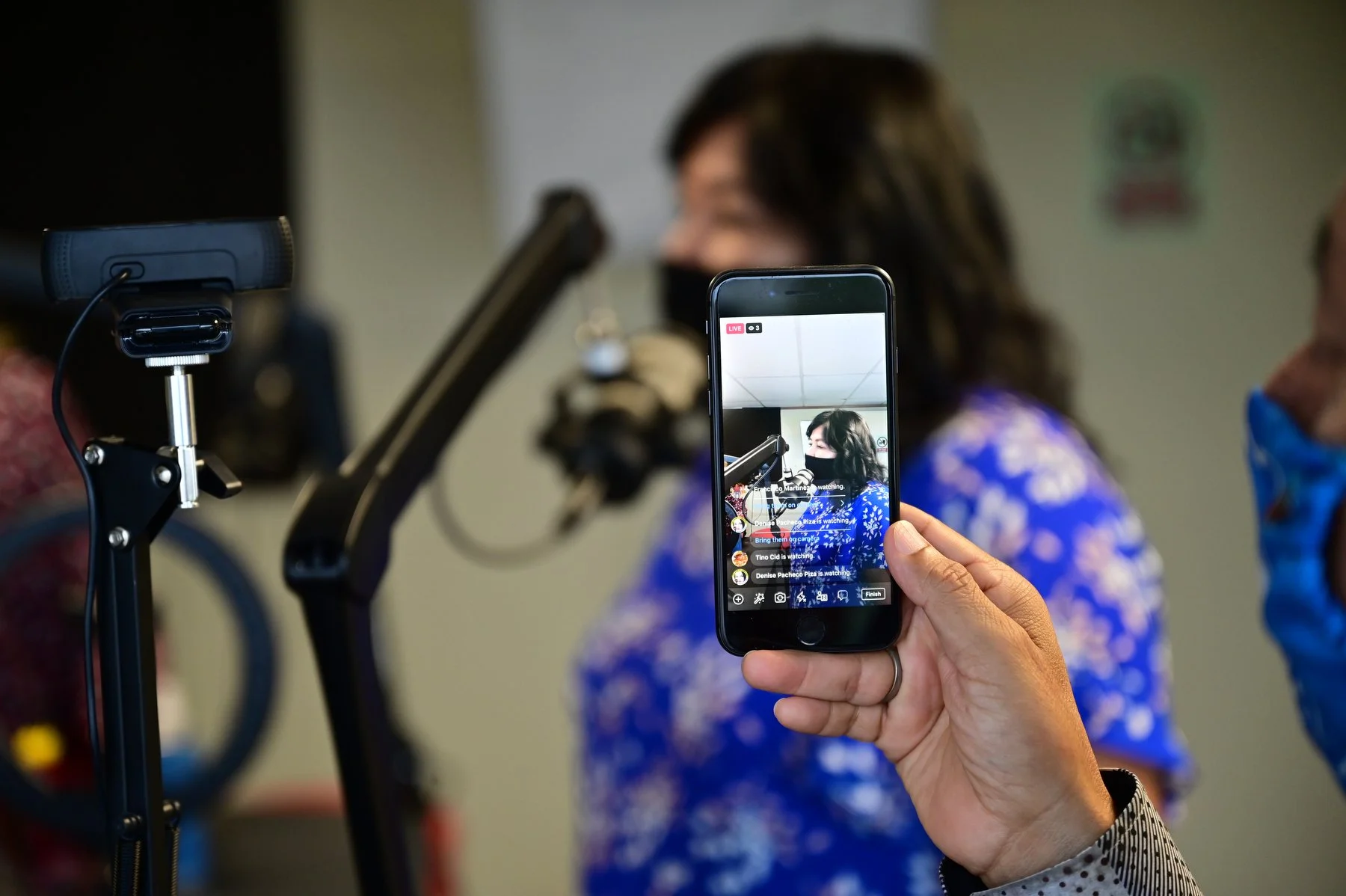Farmworker-led Solutions for Health Equity in the Ongoing COVID-19 Pandemic
In 2020, as the Covid-19 pandemic began to sweep across the United States, the term “essential worker” did not hold the same weight and meaning as it does today. As stay-at-home orders were enacted, for the first time farmworkers were deemed essential and required to continue to work in the fields and food processing plants of the country. Members of Oregon Rural Action (ORA), a grassroots organization in Eastern Oregon, were already well aware of how essential farmworkers are to our food system and the challenges they face. As the pandemic began, ORA launched a successful campaign to get Covid-related information out to Eastern Oregon’s farmworker communities on the platform that’s most accessible, the radio.
On March 23rd, 2020, Oregon Governor Kate Brown issued the State’s first stay-at-home order. One week later, ORA launched its radio show, Accion Rural Hispana, on Radio La Ley with a Spanish-speaking listenership across the region. “Our families work in agriculture and work during the day. The radio is the only way for them to have access to this information while they work,” said Obdulia “Abby” Munoz , Chair of the ORA Board and Lead Recruiter for the Migrant Education Program of Umatilla-Morrow Education Service District.
Obdulia “Abby” Munoz , Chair of the ORA Board and Lead Recruiter for the Migrant Education Program of Umatilla-Morrow Education Service District guest speaking on Accion Rural Hispana.
In Oregon, 14% of the state's population is Hispanic. In Eastern Oregon, much of the Hispanic population are farmworkers. ORA’s health equity campaign began with radio and evolved to include social media, canvassing, and hosting testing and vaccine events where people live and work. ORA organizer Rafael Ramero and Jose Garcia, a former ORA board member, teamed up with ORA farmworker members to co-host the weekly live radio show Accion Rural Hispana, where they cover topics including Covid, healthcare, and other related resources available to the community.
As an organizer, Rafael Ramero is a familiar and trusted source in the community. People recognize him by face or voice around town and reach out to him for information. In his nine years of working for the radio station, Rafael says that covering the pandemic and providing resources for the community through Oregon Rural Action’s campaign and radio show was a first. “We are primarily putting information out about Covid, the vaccine, and why it is important to get the vaccine,” said Rafael. In 2020, according to the Oregon Health Authority (OHA), Hispanic people tested positive at 4x the rate as non-hispanic individuals per 100,000 people. These health inequities are largely caused by lack of access to information and resources which the OHA and ORA co-led program have been working to ease. The gap between white and non-white vaccination rates has closed over the last two years from a 14% difference to a 4% difference through community-led and culturally strategic methods.
Rafael comes from a family line of farmworkers and works on a farm in the area. Farmworkers were expected and required to continue working throughout the pandemic but were not given the information and equipment to do so safely. Rafael recalled the fear he observed in the farmworkers on his first trip out to one of the farms to deliver Covid PPE. “For some of them, it was the first they were hearing about the pandemic,” said Rafael.
He also visits with people during their lunch breaks at food trucks, landromats, and other locations where he knows people might need additional resources. He listens to people's concerns and meets them where they’re at. Much of this work involves debunking any misinformation people might have received from other sources, handing out pamphlets and having one-on-one conversations with those who are hesitant about the vaccine. “There’s an important sense of trust there,” says Rafael.
Rafael Ramero in the field handing out COVID PPE and talking with people about a vaccine event being held later that day.
The radio show has been a staple in getting information to the people and empowering them to make the choice about getting vaccinated. The show has had over 50 guest speakers in its nearly three years of being on the air. Listeners have heard from healthcare professionals and educational speakers, all with the objective of informing and improving public health. Others have come on the show to speak about immigration services and migrant education programs as well. Abby is a frequent guest speaker on the show and works with Rafael and Jose to inform listeners about Covid vaccine events and testing sites. “I have seen an increase in people getting vaccinations. As cases of Covid were increasing, many people were scared of missing work. They work to provide for their families, and we can help them understand that the vaccines can protect them from getting sick,” said Abby. Outreach through the Spanish radio show expanded to include more social media in Spanish and Mesoamerican Indigenous languages.
The radio broadcast being live streamed to facebook.
Regular vaccine events are held where people live and work including a local taqueria, neighborhood markets, and apartment complexes. Rafael and other bilingual community organizers are out in the communities speaking with people about the importance of the vaccines and informing people about where the event is taking place and ways they can get there. ORA and other community-based organizations also hosted vaccine events as a part of large Hispanic cultural events. At one such event, Day of the Child, drew 335 people in the pouring rain. The Dia de los Muertos vaccine event attracted over 400 people. And most recently, Pasada cultural event drew 640. Over 100 people were vaccinated at a single event. As of September of 2022, 72% of Oregon’s adult Hispanic population had been vaccinated.
The radio program includes public service announcements from the region’s health departments that they have bilingual people answering the phones. Rafael sometimes receives messages in the middle of the night from listeners who find him on ORA’s Facebook page asking about the vaccine and other resources. While there are many Spanish-speaking people in these counties, there are also many that speak neither Spanish nor English as their first language. To serve this population, Accion Rural Hispana has made an effort to bring guests who speak Mesoamerican languages.
ORA’s farmworker-led communications and outreach campaign has successfully narrowed the health equity gap. “We are the farmers and so giving this information to the people is great and very important,” said Rafael, “We are saving lives.”



